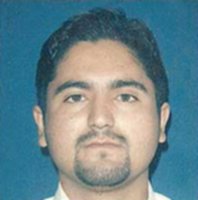Italian journalist Daniele Mastrogiacomo has returned home to a hero's welcome after two weeks as a captive of the Taliban in southern Afghanistan.
It is to everyone's great relief that the Karachi-born reporter survived his ordeal.

Ajmal Naqshbandi, Mr Mastrogiacomo's interpreter is still missing
But the terms of his release, which saw five insurgent leaders freed from Afghan prisons, have been universally criticised.
So has the fact that his two Afghan companions were apparently not part of the exchange.
'Just as hard'
"We would like to know why the Afghan government and the international community did so much for the foreign journalist, but not for the Afghan journalists," Zia Bomya of the Kabul-based Journalists' Defence Committee, said.
"We want them to work just as hard for the Afghans."
Mr Mastrogiacomo's local driver and guide, Sayed Agha, who was described in a tribute by the Daily Telegraph's Tom Coghlan as "a gentle, witty and deeply likeable young man of 25", was beheaded by his kidnappers last week, apparently to put pressure on negotiators.
His family complain that neither the Afghan nor the Italian governments have yet been in touch with them.
On Tuesday they led protests in the Helmand provincial capital, Lashkar Gar, against the two governments' "double standards".
Mr Mastrogiacomo's Kabul-based interpreter Ajmal Naqshbandi, meanwhile, is still missing, to the great distress of his family.
"The family is frightened and depressed," his brother Munir Naqshabandi said.
An Italian journalist held for two weeks in Afghanistan said after his release that he saw his captors cut off the head of one of the two Afghans kidnapped with him and thought he would be next to die.
In an interview with RAI Tg3 News, Daniele Mastrogiacomo described a harrowing experience. "I saw him be decapitated," he said.
He said the kidnappers threw the Afghan to his knees and suffocated him in the sand as they cut his head off. "Then they wiped the knife on his clothes. I was shaking. Obviously I thought 'it's my turn now,'" Mastrogiacomo said.
"The government doesn't care about us. I don't know why."
He said the Italian embassy in Kabul and Mr Mastrogiacomo's newspaper, La Repubblica, had offered to help, but since the Italian was released they had heard nothing from his kidnappers.
"The government tried to release Daniele, but after he was released they have done nothing to help my brother," Munir told the BBC.
"I appeal to the Taliban to release my brother, because we are Muslim. My brother is an Afghan, he worked as a journalist and not for any governments."
According to their father, Ghulam Haider, Ajmal, 25, who was married six months ago, was the family's main earner.
"He is the only one supporting the family, without him there is no-one else," he said.
'Exceptional measure'
The three men were abducted in Helmand province, where Nato and Afghan forces recently stepped up military operations against the Taliban.
The movement told the local Pajhwok press agency that five of its men had been freed in exchange for Mr Mastrogiacomo.
They named the five as:
- Ustad Yaser, head of the Taliban's cultural wing
- Abdul Latif Hakimi, former Taliban spokesman
- Mansur Ahmad, brother of Taliban commander Mullah Dadullah Akhund
- Two other commanders, Hamdollah and Abdol Ghaffar.
The exchange has been confirmed by the Italian government, but not by Afghanistan.
"It was an exceptional measure taken because we value our relations and friendship with Italy," was all President Hamid Karzai's spokesman Karim Rahimi said this week. "It won't be repeated."
There has been speculation that Italy threatened to pull its 1,900 troops out of Afghanistan if Mr Karzai did not authorise the deal - but Mr Rahimi strongly denied this.
'No journalists'
Coalition allies meanwhile have been blunt in their criticism.
"The US does not make concessions to terrorist demands. End of story," said Joe Mellott, the spokesman for the US embassy in Afghanistan.
"When we create situations where you can buy the freedom of Taliban fighters when you catch a journalist, in the short term there will be no journalists any more," Dutch Foreign Minister Maxime Verhagen said during a visit to Kabul on Wednesday.
Mr Mastrogiacomo was asked about the controversy surrounding his release at a press conference in Italy on Wednesday.
"I believe that what has been done doesn't violate the sovereignty of a state or the autonomy of its foreign policy decisions," he said, referring to both Italy and Afghanistan.
"If things are done to save a human life... this is a positive thing."
But journalists here are worried that the deal has set a dangerous precedent.
"Any of us might now be got while we're out working," a Kandahar-based reporter told me.
"I am really disappointed by what has happened, this has made life much more difficult."
Italy is part of a coalition that says it wants to support the Afghan government, defeat the Taliban and win the hearts and minds of the Afghan people.
But the deal to secure the release of their journalist appears to have undermined President Karzai, gifted a victory to the insurgents and upset and angered a lot of people.



